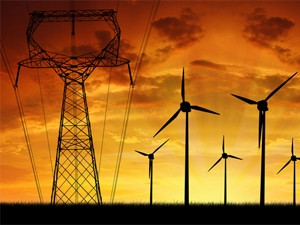
Labour union the National Union of Mineworkers (NUM) says it will fight what it perceives the "privatisation" of power utility Eskom to the renewable energy industry.
This is after the power utility said it will shut down five coal-powered power stations - Hendrina, Kriel, Komati, Grootvlei and Camden - as it moves to work more closely with renewable energy independent power producers (IPPs).
The labour body believes the closing of the five mines will result in thousands of people losing their jobs.
Earlier this month, the Coal Transportation Forum organised coal trucking companies, suppliers, mines and all affected entities to hold a march to the Union Building that brought the country's capital, Pretoria, to a standstill.
Grid connections
Although IPPs have accused power utility Eskom of dragging its feet on signing outstanding power purchase agreements (PPAs), president Jacob Zuma recently said the power utility will sign the contracts with the renewable energy industry. He made the remarks last month during his State of the Nation Address.
Thava Govender, group executive for transmission at Eskom, recently said as of January 2017, the company had connected 62 IPP projects as part of the Department of Energy's Renewable Energy Independent Power Producer and Peaker programmes.
He noted these 62 projects have cumulatively added 4 200MW of generation capacity to the grid. A further 620MW is expected to be added to the grid in the 2017/2018 financial year as the third bid window of REIPP projects are integrated into the national grid, said Govender.
Eskom spokesperson Khulu Phasiwe told ITWeb this morning that Eskom has identified the five power stations for decommissioning, as some of them are nearing the end of their lifespan.
"Working within a context of surplus electricity supply, low economic growth, and the need to add new renewable energy projects, Eskom has had to create space for the renewables by proposing to close some of the coal-fired power stations. This will also help meet South Africa's commitments to reduce greenhouse gas emissions," Phasiwe said.
He added the five stations have over 6 000 Eskom employees alone. "If you add the coal miners and the truck drivers, then the figure will rise sharply. Eskom will be meeting with various stakeholders, including the trade unions and government, in an effort to address this matter. We are hopeful the matter will be resolved amicably, and without any job losses."
In a statement, NUM says it recently converged in Gauteng at Bon Hotel in Midrand to discuss, among other things, the impact of the IPPs' entrance in the energy market as informed by the Integrated Resource Plan.
"The NUM is extremely saddened the Eskom board has taken a decision to shut down five power stations without consulting the unions as stakeholders," the labour union says.
"We view the entrance or the inclusion of IPPs to the energy sphere as privatisation brought to Eskom through the back door. Our country is under serious attack by the neo-liberal agenda that seeks to undermine the gains of our liberation since 1994. The NUM always said it cannot be about us without us."
During the deliberations, the NUM shop stewards came to the conclusion that as much as they support green energy, they cannot ignore scientific facts that green energy is not as "cheap as it is portrayed by the capitalists who are dealing with it".
"We know that capitalism is about profit maximisation. Capitalists will go to the extent of misleading society for only profit maximisation. We have further noted that green energy is not even reliable. It doesn't have the capacity to replace the current base load as currently subjectively portrayed. The sun doesn't shine every day and also the wind doesn't blow every day. We have a problem with the selective and subjective bias that opportunistically purports the renewable energy as the alpha and omega for South Africa, whilst completely turning a blind eye to the realities that these renewables can't be used as base loads. What is going to happen if the sun does not shine and also when the wind does not blow? We will definitely have a blackout," the union says.
Protest action
The union has concluded it will have a national march that will begin as soon as possible to protest against the signing of the inclusion of IPPs to the national grid. The action will include mass action and educating the public on the real impact of the IPPs on the price of electricity.
According to NUM, the inclusion of IPPs means Eskom must pay more for the commodity that the coal industry can produce for less. If Eskom agrees, the long-term impact of this might result in Eskom being bankrupt and sold to the highest bidder, it adds.
"The NUM supports green energy but we do not support backdoor privatisation of Eskom in the form of IPPs. We have fought the privatisation of Eskom during the period of the 1996 class project and we will continue fighting it now. The NUM is calling for public enterprises minister Lynne Brown to step down as she has failed to meet the NUM and other unions several times when she was invited."
Share